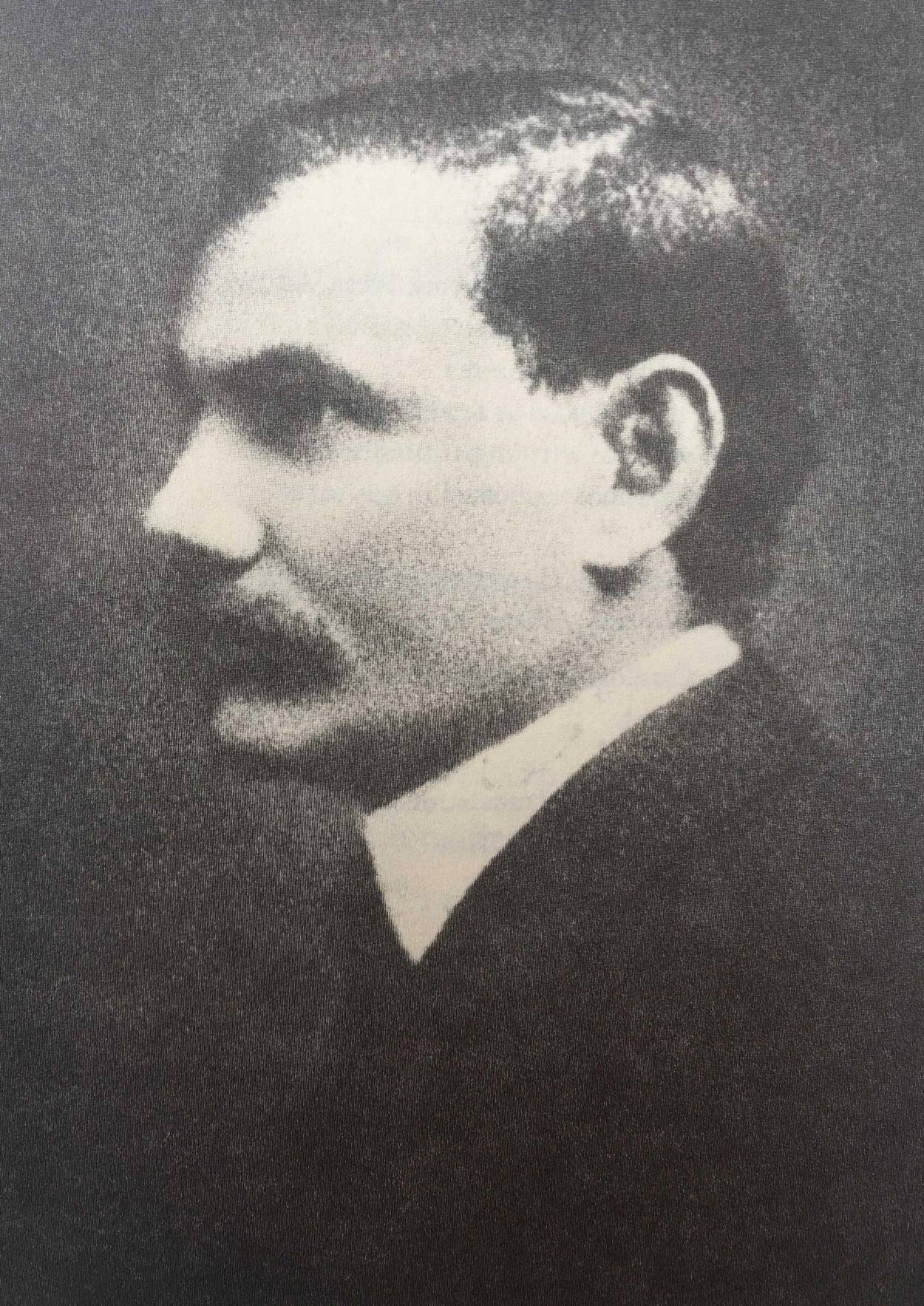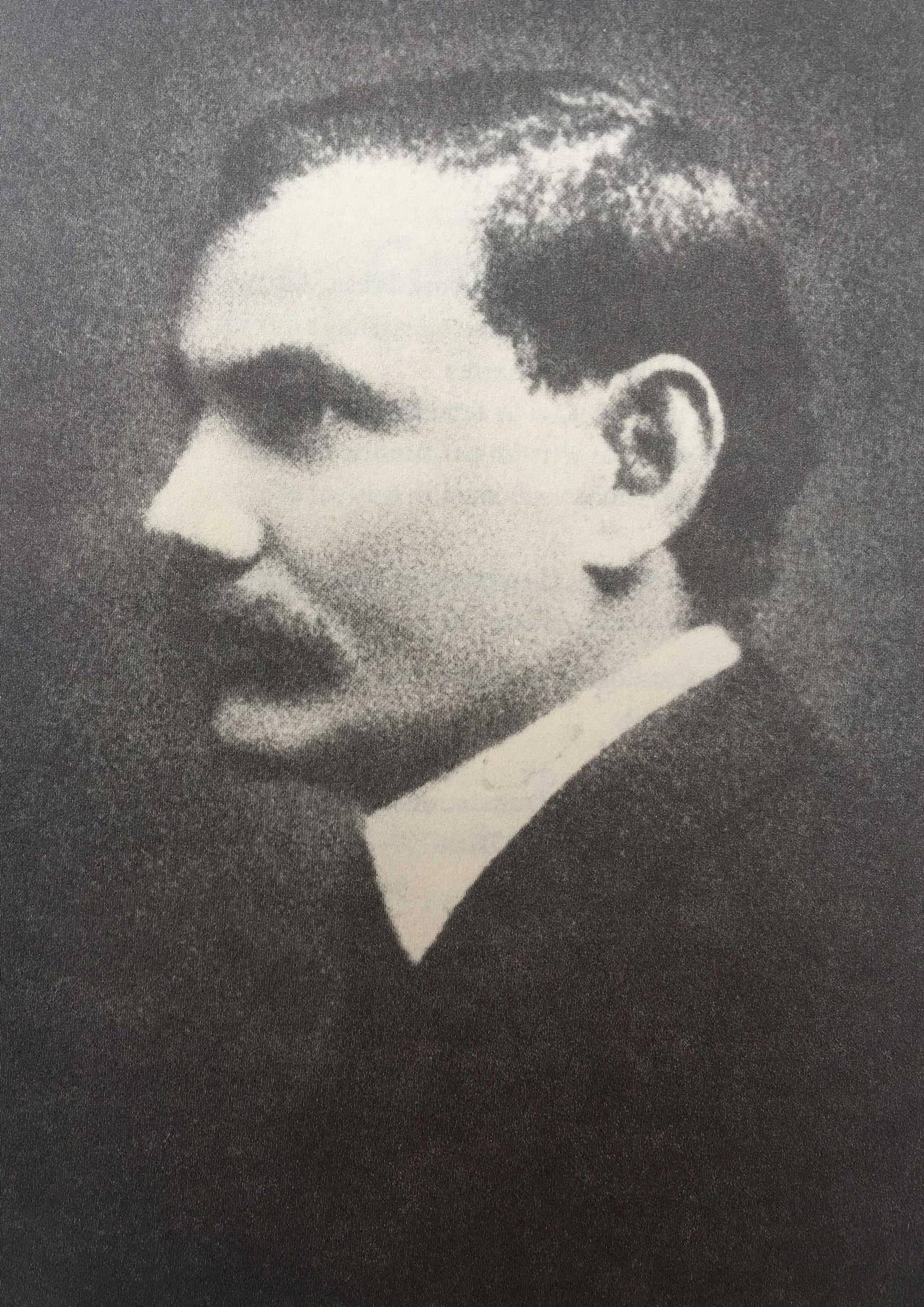Meet U.S. Secretary of State-Designate Antony Blinken’s Great-Grandpa, the Kurt Cobain of Yiddish Lit
Meir Blinkin’s sordid and sometimes mystical tales of extramarital sex made him the brightest star of ‘di yunge’ before his untimely death at 35




The American Jewish community has embarked on what has become a quadrennial ritual—reporting on the Jewish street cred of whichever new administration power player happens to be Jewish. This time around, it’s secretary of state nominee Antony Blinken, whose bona fides have already been publicized via the usual formula: “Did you know that so-and-so’s [fill-in-the-blank relative!] was a [this part’s multiple choice!] rabbi/Israeli/Orthodox person/Holocaust survivor?” In Blinken’s case, most of this chatter has focused on his Holocaust survivor stepfather, the lawyer and author Samuel Pisar, though a few news items have also mentioned that Blinken’s paternal great-grandfather was a Yiddish author.
Those proudly reporting on Blinken’s literary ancestry probably assume that a Yiddish author great-grandpa is by definition someone wise, learned, aged, maybe pious, and definitely hilarious—as everyone who has never read a Yiddish book assumes Yiddish writers are. Such people might be startled to learn that Antony Blinken’s great-grandfather Meir Blinkin’s Yiddish stories, published before the author’s death at the wise old age of 35, are mostly depressing tales of extramarital sex. Also, they’re excellent.
Given the total lack of context here, it’s worth backing up a bit to understand the artistic development of Meir Blinkin, whose creativity was largely a response to what came before him. (I use this transliterated spelling of Blinkin’s name because it’s the spelling used for the single out-of-print volume of his stories available in English, published in 1984 through the efforts of his son and the literary scholar Ruth Wisse—though good luck getting a copy. Perhaps due to his great-grandson’s sudden fame, they’re now selling online for upwards of $60 apiece.)
Pre-modern Yiddish literature was mostly a religious enterprise, but modern Yiddish literature, emerging in the mid-19th century, began largely in the service of the Haskalah, or Jewish Enlightenment. This revolutionary movement used literature as a means to an end, through withering (and often entirely fair) satires of religious Jewish life. The next generation of Yiddish writers, already heirs to this Enlightenment, paid more attention to artistry, but still often used their work to preach politics—which usually meant clarion calls to the labor movement. The third generation of Yiddish writers were blessed with enough of a literary tradition that they could rebel against it, and create space for things that had previously received little attention in Yiddish writing: individuality, lyricism, psychological realism, and private emotion.
This literary rebellion coincided with the circumstances to empower it. In New York City in the 1910s, Yiddish-speaking Jews had reached a critical mass that supported a large universe of periodicals, theater, and book publishing, allowing opportunities for new writers and editors eager to impress their increasingly sophisticated audiences. One loose group of Yiddish writers who emerged in New York City in the 1910s were known as di yunge (“Youth”), young immigrant voices who sought to leave the politically driven and yeshiva-influenced styles of the past behind in order to make Yiddish literature an enterprise comparable to emerging European and American modernism. Most of these writers—Mani Leyb, Moyshe-Leyb Halpern, Anna Margolin, Zishe Landoy, H. Leyvik, Yosef Opatoshu, Fradl Shtok, Y.Y. Shvarts, and others—focused on poetry. Of the prose writers among di yunge, Meir Blinkin was king.
Like all of di yunge, Blinkin came to America from Eastern Europe as a young adult. (Writers who immigrated as children soon lost the fluency, not to mention the desire, required for Yiddish literary invention; such people wrote works like “White Christmas.”) He was born in 1879 in Periaslav in present-day Ukraine, a town famous for being the childhood home of Yiddish literary giant Sholem Aleichem, but soon moved with his parents to Kyiv, where anti-Semitic laws prohibited all but a few highly skilled Jewish professionals from residing—and where most Jews, including Blinkin and his parents, were therefore “undocumented,” with all of the perils that entailed.
Blinkin, who married and had two sons in Kyiv, managed to learn carpentry and also receive some medical training before emigrating to New York in 1904, where he then supported himself and later his family as both a carpenter and, oddly, as a masseur. He soon began publishing stories that were wildly popular, extremely sophisticated stylistically, and pushed the limits of what Yiddish audiences expected from fiction.
Yes, most of these stories are about sex. Even more remarkably, most of them are from women characters’ points of view. His most developed work is probably “Card Game,” a long story about a young married couple where the man, Moyshe, has “made it” in New York enough to park his wife in a fancy apartment in the Bronx—and who celebrates his accomplishments with his married mistress. But the story is told mostly from the perspective of Fanya, his young naïve wife, whom he married because she was “a lonely girl with no family in America. Moyshe reasoned this way: She was still very young. The ‘shop’ [sweatshop work] had not yet put its debilitating stamp upon her. She was so isolated and alone in the new country that if he, a prosperous businessman, were to marry her, she would be grateful to him forever.”
Today, those who seek out Yiddish literature are often looking for engagement with tradition, the unique layering of Jewish religious sources—qualities that ‘di yunge’ did their utmost to avoid.
That’s the setup. We first see this situation through Fanya’s eyes, as she tries all kinds of sweet but hopeless tricks to entice her husband’s desire. Trapped in her gilded cage, she annoys Moyshe with her constant demand for affection. He solves the problem by sending along his mistress and her friends to entertain his wife with a regular card game—a pretext to scandalize and indoctrinate Fanya by regaling her with their sexual adventures, teaching her that free love is the American normal. Fanya is disgusted enough to shun them, but when she senses Moyshe’s disinterest in her, she strikes out on her own, eventually inviting a male friend of Moyshe’s to come over and, um, play.
At this point, a less talented writer would raise the moral stakes. But Blinkin doesn’t go there. Instead he leaves us trapped in Fanya’s mind, unequipped to distinguish between liberty, desire, and love.
Blinkin thus gives us Desperate Housewives of New York. But he also serves up Desperate Housewives of the Shtetl: One European story involves an affair between a woman and her brother-in-law, resulting in “cousins” who don’t know they’re siblings. In another, a woman enchanted by her husband’s political proclamation of devotion to children has her heart broken when she shares her joy at being pregnant—and her husband promptly demands an abortion. In another, the women of a Periaslav suburb act in concert to exact revenge on a man who refuses to marry a young woman he has left pregnant.
In each case, what gives these stories their power is less their scandalous plots than Blinkin’s subtle redirection of the reader’s priorities. The happy lovers here are only fleetingly happy, but social conventions cannot satisfy these characters either. At every twist, Blinkin refuses to give us solutions—and this feels like a profound honoring of life as it is actually lived.
One masterpiece of a story, “The Mysterious Secret,” describes a young woman obsessed by “one basic question: What was at the bottom of all the deception and the lying in her family? ... Why, although they were of the same flesh and blood, were they nonetheless strangers to each other?” Most readers will quickly guess the never-revealed “secret,” but what they won’t anticipate is how the protagonist enacts it—not by “discovering” it, but by reliving it in her own life through her own extramarital pregnancy, which is followed by a psychosis that overlaps with a horrifying prophetic gift.
The surreal quality of this story, told almost exclusively from the young woman’s perspective, achieves an advanced kind of literary magic. Like much of the anti-traditional literature of this period, it draws the reader into a depressingly restricted way of life where freedom and love are off limits. But by casting readers into the mind of a woman whose profound insight has no outlet, Blinkin doesn’t settle for challenging social norms. Instead, he challenges reality itself, forcing the reader to examine the boundaries of perception and free will to decide whether any of us, even in the freest of circumstances, can escape the limits of other people’s imaginations and expectations.
But the Blinkin story that will stay with me is one of the very few that involved no sex at all, a story titled “Doctor Machover.” The story’s initial setup is almost a Yiddish cliché: A gifted yeshiva student leaves the fold to become a freethinker. Yawn—except that Blinkin layers onto this tired plot device a surreal twist. Moyshe-Dovid Machover is a talented student with a strange affinity for the Hebrew prophets, reciting their prophecies in his sleep—and soon Jews begin seeing him as a holy man and visiting him for blessings. His loss of faith is precipitated by a mystical device: In one of the study house’s holy books, he discovers an anonymous handwritten note that says: “Dear reader … Know once and for all that everything printed in this book—and many others like it—is falsehood and lies. There is no God.” This is, implausibly, enough to push our hero over the edge, and years later he caps his secular academic career with an atheist manifesto.
So far, so boring. But then Blinkin does something stunning. As Doctor Machover’s book awaits publication, a friend’s child suffers a painful death. While Doctor Machover grieves, a woman asks him to save her ill son, and he sarcastically suggests a meaningless treatment. Two days later, the woman returns, sobbing with gratitude over her son’s miraculous recovery. Soon people are beating down Doctor Machover’s door, and he heals them by the dozens. But he himself does not understand his power, or even really accept it, experiencing only a “faith in faith itself.” The story leaves room for the reader to decide what it all means, and since reading it, I have lived in that room.
One irony of di yunge is that in their devotion to making Yiddish a peer of non-Jewish languages, they found themselves largely bereft of literary heirs. Meir Blinkin’s great-grandson, with his decades of international work qualifying him to be his country’s highest ranking diplomat, is certainly the sort of world citizen that writers like his great-grandfather aspired to become. Yet he surely cannot read his great-grandfather’s stories. And today, those who seek out Yiddish literature are often looking for exactly those qualities—engagement with tradition, the unique layering of Jewish religious sources—that di yunge did their utmost to avoid.
But unlike most of di yunge, who grew old and saw their language vanish, Meir Blinkin died at 35 and thus remains forever young.
Discovering Blinkin’s work now feels like a gift, its once-scandalous content less valuable than the space it created for ambiguity, for possibility, for personal agency, for the private message carried from author to reader. In words that could describe Blinkin’s entire legacy, Doctor Machover wonders: “Was he himself not a book, a whole book, like those in his bookcases?”
Dara Horn is the award-winning author of five novels and the essay collection People Love Dead Jews.